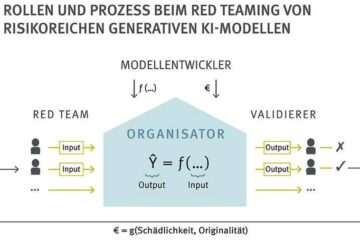Giving Global Times their History

It is organized by the European Network in Universal and Global History (ENIUGH) with its headquarters at the University of Leipzig.
Under this year’s major theme „Connections and Comparisons“ around 500 renowned historians from all over Europe will be debating in nearly 100 sections the latest research conducted on the Origins and Perspectives, Opportunities and Problems of Globalisation processes. Globalisation – both a key term and a taboo word of our times – will be placed in its historical context. A necessary prerequisite in the search for solutions to current challenges.
If we are to remain capable of responding to the challenges of our times we must understand the long history of our globalised present. The new World and Global History established itself a few years ago in the international scientific landscape. This has led to a varied research field and to the progressive anchoring of global history perspectives in University teaching, among others in study programmes such as the EU-funded “Global Studies in a European Perspective”, carried out by an international consortium from the universities of Vienna, Wroc³aw, Roskilde and the London School of Economics and Political Science (LSE), and conducted by the University of Leipzig
The European Congress for World and Global History offers researchers from all over Europe a central forum to discuss these questions. The Congress is one of the most distinguished events in Europe in the field of historical research on globalisation and it can boast a worldwide drawing power.
The European Network in Universal and Global History (ENIUGH) organizes the congress. Its headquarters is located at the Global and European Studies Institute of the University of Leipzig. Prof. Dr. Matthias Middell is the head of steering committee of congress. The network draws also on research which is conducted at the Centre for Area Studies (CAS) and at the Center for the History and Culture of East Central Europe (GWCO) at the University of Leipzig on the role of world regions in the process of globalization. Both institutions support the congress also from its research funds.
The European Network is at the same time member of the Network of Global and World History Organizations (NOGWHISTO), which has become affiliated member of the Comité International des Sciences Historiques in 2010 and thus also engages in this framework internationally for the promotion of research and teaching of global, world and transnational history.
Date: April 14-17, 2011
Venue: London School of Economics and Political Science, Houghton Street, London WC2A 2AE, England
Contact person: Steffi Marung, Katja Naumann, ENIUGH, c/o Universität Leipzig, Emil-Fuchs-Strasse 1, 04109 Leipzig, marung@uni-leipzig.de
You can find further information and the Congress Programme at www.eniugh.org/congress
For questions and for arranging press events, please contact Steffi Marung (marung@uni-leipzig.de)
Media Contact
Weitere Informationen:
http://www.eniugh.org/congressAlle Nachrichten aus der Kategorie: Veranstaltungsnachrichten
Neueste Beiträge

Entscheidender Durchbruch für die Batterieproduktion
Energie speichern und nutzen mit innovativen Schwefelkathoden. HU-Forschungsteam entwickelt Grundlagen für nachhaltige Batterietechnologie. Elektromobilität und portable elektronische Geräte wie Laptop und Handy sind ohne die Verwendung von Lithium-Ionen-Batterien undenkbar. Das…

Wenn Immunzellen den Körper bewegungsunfähig machen
Weltweit erste Therapie der systemischen Sklerose mit einer onkologischen Immuntherapie am LMU Klinikum München. Es ist ein durchaus spektakulärer Fall: Nach einem mehrwöchigen Behandlungszyklus mit einem immuntherapeutischen Krebsmedikament hat ein…

So soll risikoreiche generative KI geprüft werden
Die beschlossene KI-Verordnung der EU sieht vor, dass Künstliche-Intelligenz-Modelle (KI) „für allgemeine Zwecke mit systemischem Risiko“ besonders strikt überprüft werden. In diese Modellkategorie gehören auch populäre generative KI-Modelle wie GPT4…





















